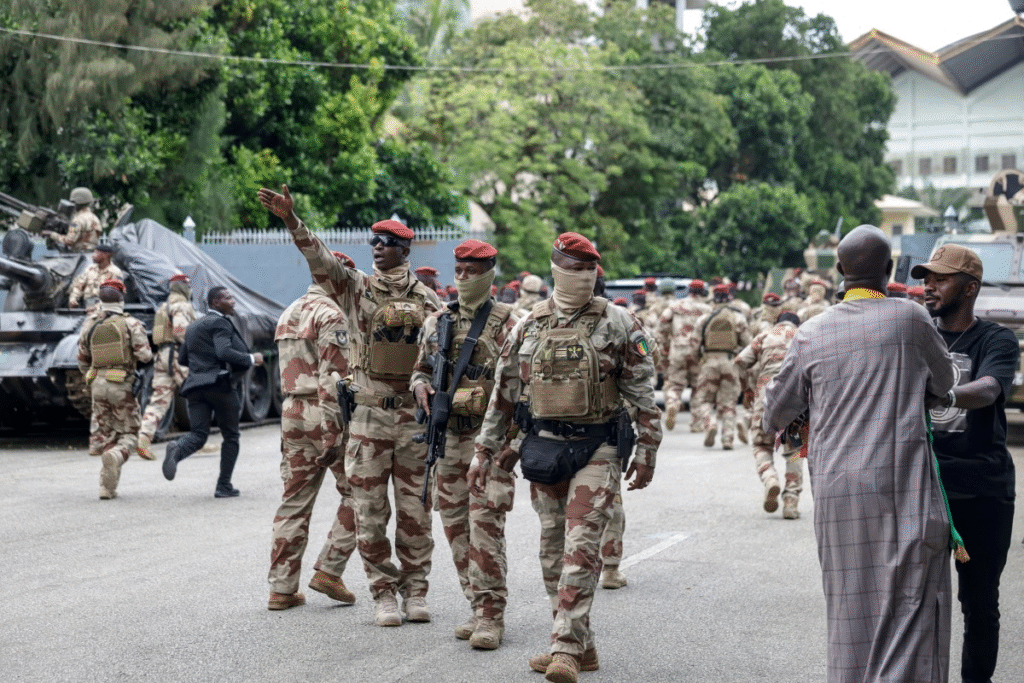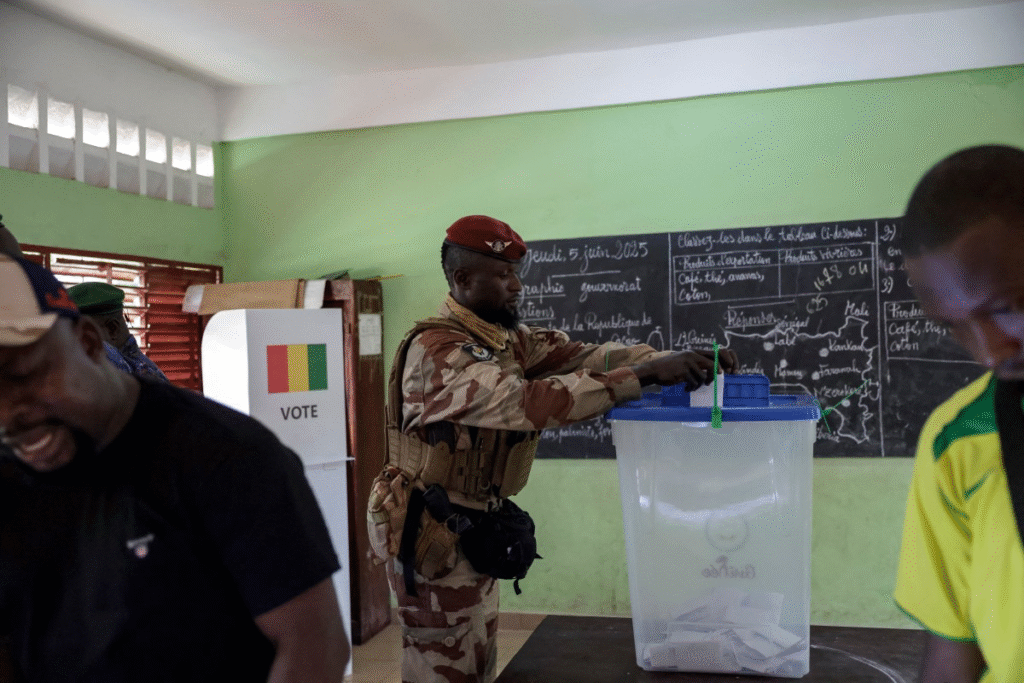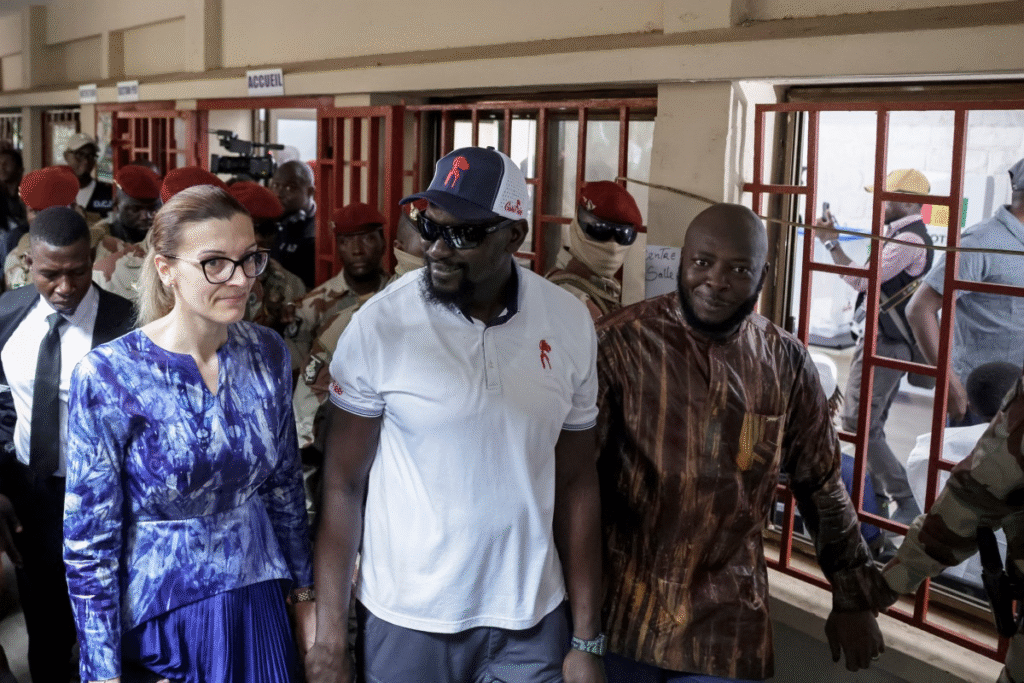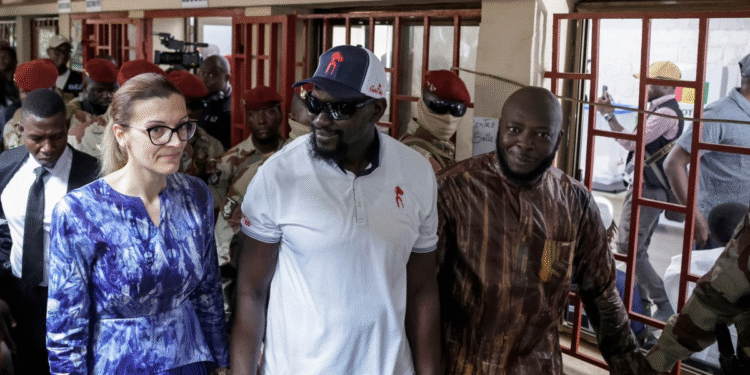Guineans went to the polls on Sunday in a constitutional referendum that could end years of military transition but also allow junta leader General Mamady Doumbouya to run for president. The vote, boycotted by opposition groups, has been described by critics as a “charade” to entrench military rule.

The referendum, eagerly awaited by citizens and the international community, is meant to lay the groundwork for long-delayed elections following Doumbouya’s 2021 coup that toppled elected president Alpha Condé. About 6.7 million people were eligible to cast ballots, with polls opening at 7 a.m. under tight security in Conakry and across the country.
“We want the transition to end,” said Ahmad Diallo, a 23-year-old student voting in the capital. First-time voter Aisha Camara, 20, expressed support for the junta, saying she came “to support President Doumbouya.”

Authorities deployed 45,000 security personnel, over 1,000 vehicles and combat helicopters to safeguard the vote. Polls closed at 6 p.m., with results expected by Tuesday, according to the electoral commission.
While the “yes” campaign dominated the streets with rallies, posters and music, the “no” camp was mostly confined to social media and led by exiled critics. Opposition parties, many of them suspended, had urged a boycott, accusing the junta of stifling dissent through arrests, media closures, and bans on demonstrations.

The draft constitution removes a key transitional rule barring junta leaders and officials from running in elections. It also sets age limits of 40 to 80 for presidential candidates and requires them to reside in Guinea — criteria that effectively exclude exiled Condé, 87, and opposition leader Cellou Dalein Diallo, 73.
If adopted, the charter would replace the transitional framework and potentially pave the way for Doumbouya’s candidacy in upcoming elections. Though the junta has promised polls before the year’s end, no date has been announced.
Guinea remains suspended from the African Union and excluded from ECOWAS summits. The UN Human Rights Office on Sunday urged authorities to ensure a “peaceful and transparent” vote, warning that bans on political parties and media “raise serious questions about inclusiveness and free participation.”









